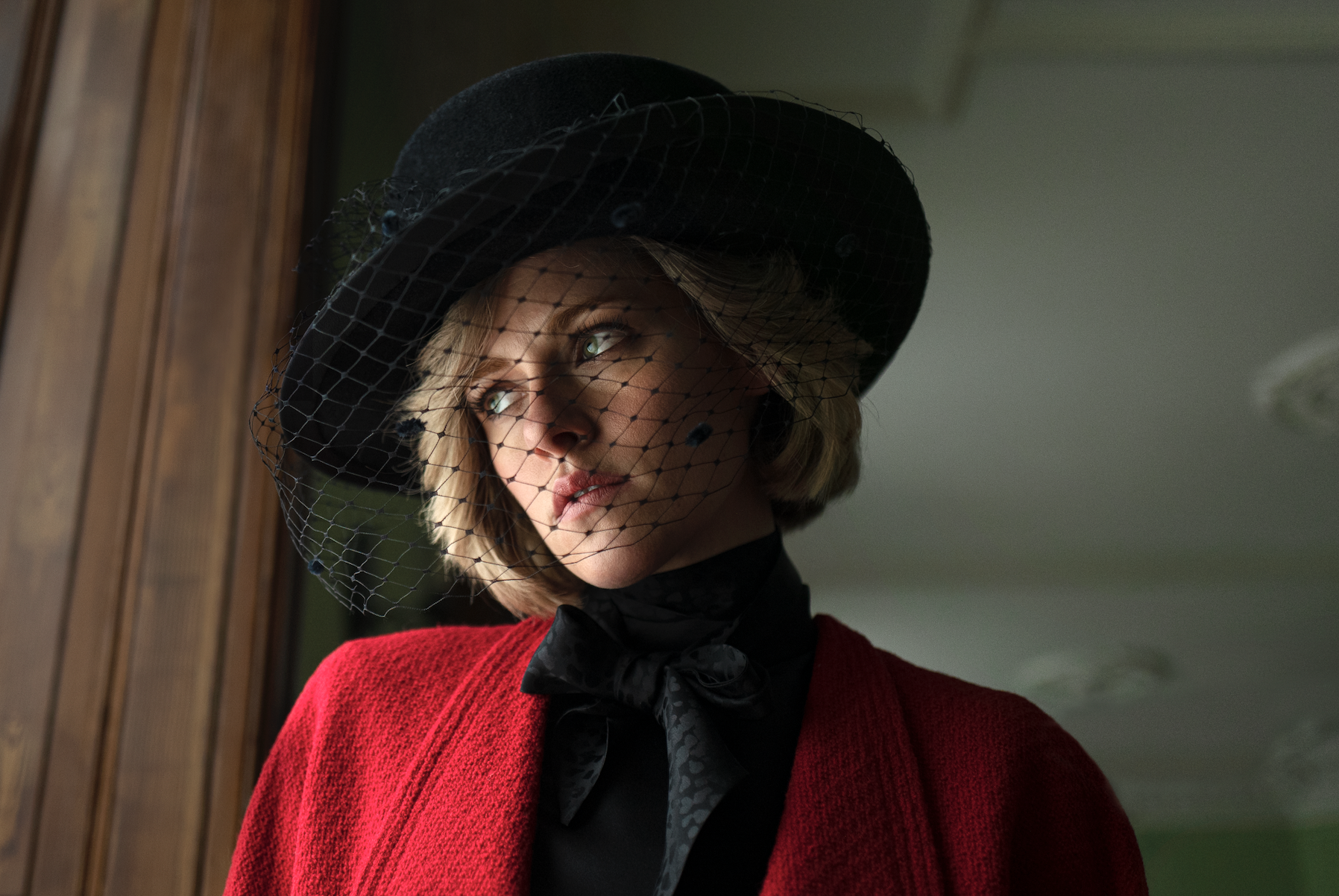SPENCER
Directing: A
Acting: A
Writing: A
Cinematography: A
Editing: A
Finally, true cinema in 2021 has arrived. I’m not talking about giant, blockbuster epics—who do have their place—but about dramatic works of art, of the sort that, even as a drama, demands to be seen on the big screen.
I fully lost myself in Spencer, the latest by Jackie director Pablo Larraín. I thoroughly loved that movie as well, and the two films make great companion pieces, showcasing astonishing performances by its lead actresses. Arguably more so in the case of Kristen Stewart, who has come such a long way from her Twilight days, and completely disappears into the role of Princess Diana. Natalie Portman’s depiction of Jaqueline Kennedy was somewhat maligned, which I never really agreed with, but I cannot see any room for such nitpicking in the case of Stewart. To accept her completely as Diana onscreen is completely effortless.
Furthermore, the two films have similar tones and styles, yet retain a uniqueness that makes them each their own entity. Spencer, for one, is an immersion into the lives of British royalty—over the course of a three-day Christmas family gathering. This is always the strength of the best biographical films, wherein the focus is on a brief period, or even a particular moment, in a historical figure’s life, rather than an attempt to encompass their entire lifetime.
And the script, by Steven Knight, is an exquisite piece of work, taking a snapshot of a weekend in Diana’s life, ten years into her relationship with Prince Charles—that puts them in about 1991—and still somehow reflecting the vast universe of obsession and scandal surrounding them. This is rarely done overtly, and when it is, it’s done briefly, as in the moment Diana steps outside for a mass of paparazzi cameras.
Larraín’s camera consistently follows Diana in gliding tracking shots, by turns capturing the expanse of the grounds and the opulence of the country house where they are staying for the holiday. Every frame is gorgeous, most of them prominently featuring Kristen Stewart as Diana, perfectly lit. It’s funny how screen depictions of certain events or concepts often come in twos, and the pretty high-profile depiction of Princes Diana by Emma Corrin in season four of Netflix’s The Crown just happened in the fall of 2020, all of one year ago. Corrin’s performance was excellent in its own right, and she has a closer facial resemblance to the actual Princess Di, but something about Stewart’s Performance thoroughly transcends and surface dissimilarities. Her performance is so amazing, so beyond all expectations, if she does not get nominated for an Oscar, there is no justice in this world. She could easily win the award.
All of the character parts surrounding Stewart are comparatively minor, with just a few family members getting one or two key scenes—Stella Gonet, as Queen Elizabeth, gets all of two scenes with any real dialogue, one of them just featuring her on the television delivering her annual Christmas address. In the other, though, she offers Diana a surprising bit of empathy, before pivoting to a reminder of the cold realities of each of their positions in this family. The most significant supporting role goes to Timothy Spall, here looking aged and almost shockingly thin after his years as Peter Pettigrew in the Harry Potter series, playing a key person in the house staff struggling with the mandate to rein Diana in. Indeed, most of the people around Diana in Spencer (that title referencing her maiden name, a symbol of a past she pines for) seem genuinely to care about her. It’s just that how much they can empathize is stymied by their sense of duty to the cultural strictures that keep any of them from really finding any happiness. They are inured to it, however, having grown up with it; Diana, even ten years in, cannot reconcile these challenges with the comparative freedoms she knew in her youth.
A fair amount of media representation has existed in recent years regarding Diana’s bulimia, but never before has anyone so carefully depicted her depression, and by extension, her mental illness. Diana’s often erratic behavior is difficult to control, made doubly frustrating by the strict expectations of protocol and tradition. We can find ways to dismiss her struggles within the context of objectively insane amounts of privilege, but Spencer refuses to let us forget how any existence in that exclusive world can be a genuine prison all its own. Larraín is brilliantly capturing Diana’s desperate feelings of loneliness and emotional isolation. There is a sad poetry to the overall presentation in Spencer, which features such beauty, including on the part of Diana herself, her face, her exquisite outfits, every detail of that beauty just being another link in the fencing of her cage.
Spencer reminds me a bit of another movie I love, The Hours, with its utter watchability in spite of its overall tone of melancholy. I could probably watch this movie again and again. The same won’t be the same for others, but this is one of those movies that feels like it was custom made just for me. I just plain loved it.
She’s a complicated woman who will win you over.
Overall: A

